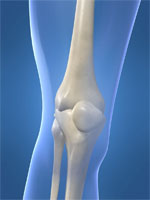as the arthritis is so common medical problem affecting millions of people around the world, it is not surprising that a number of myths that appeared many of us have come to regard as the real facts.
This is quite understandable as people have come to regard arthritis as "old person" requirement, something that could affect your older relatives. While it's good May be true, it is not so widely appreciated that some forms of arthritis can affect younger people. And it is possible to maintain a common injury in any age that can lead to osteoarthritis, which is one of the most common form of arthritis.
It is estimated that more than half of arthritis sufferers are under the age of 65 years, but juvenile arthritis can start in children as young as infants and toddlers. Arthritis affects many people as they age it is certainly not an inevitable part of aging. In fact, according to the American College of Rheumatology, a third of people older than 70 years show that there is no x-ray evidence of osteoarthritis. A 70 per cent of people who do not show signs of deterioration in the joint associated with osteoarthritis in the x-rays, only half of them actually develop symptoms.
Does the wet weather lead to arthritis?
This is a very common assumption is that that the pain from arthritis brought on by cold and damp weather, according to the Arthritis Foundation, nearly half of arthritis patients think they can predict the weather. However, medical studies to confirm this have been inconclusive. Having said that it is known that warmer weather can be mild arthritis sufferers feel better, but it might be good, because they are more active in milder weather than during the bleaker winter months.
Arthritis and exercise: good or bad
There is a school of thought that exercise worsens the symptoms of arthritis. However, the fitness arthritis and seniors trial which was the largest clinical trial to evaluate the effect of exercise on arthritis sufferers, found that those in a study conducted on a regular basis had a significant improvement in symptoms, physical disabilities, as well as increased physical performance and reduced pain.
is well known that exercise stimulates the function and mobility, control weight and strengthens the muscles that support joints, but keep in mind that this refers to moderate exercise like walking, Aquafit, or perhaps Tai Chi, and that high-impact exercise such as running, especially if your knees bother you, you probably should be avoided.
Arthritis and diet
Studies have shown that a diet rich in vegetables, fruits and whole grains, supplemented diet, which includes "good" fats found in fish and olive oil and nuts can be particularly effective in protecting the joints and helps to relieve the symptoms of rheumatoid arthritis.
, but not all foods are equal when it comes to relieving symptoms of arthritis and there is a question whether the vegetables in the "nightshade" family, including potatoes, tomatoes, eggplants and peppers can aggravate the symptoms. While the medical jury is still out on this one, and long-term studies have been completed it appears that certain foods can aggravate the symptoms of rheumatoid arthritis, at least in some people.
Knuckle-cracking:? More than just annoying
I remember my family is my warning not to crack my knuckles as a child because it would cause arthritis later in life, so you May have heard this story too. And although is May seem plausible conclusion, so far the medical studies have found no correlation between knuckle-cracking and arthritis.
Knuckle cracking may remain annoying habits, which eventually can affect your posture and your strength, it does not mean that knuckle crackers will develop arthritis later in life. But on reflection, you might prefer to keep this secret of the fact that in the company of their children or grandchildren.

{ 0 komentar... Views All / Send Comment! }
Posting Komentar